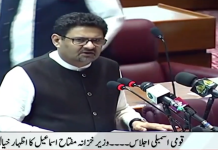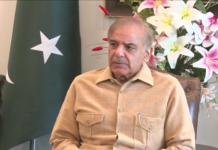The Islamabad High Court (IHC) on Tuesday issued a notice to the Election Commission of Pakistan (ECP) on a petition against ‘judiciary like powers given to the commission’. On May 8, Advocate Daniyal Khokhar, through senior lawyer and Pakistan Tehreek-e-Insaf leader Babar Awan, filed a petition in the high court, challenging sections 4, 9 and 10 of the Election Act, 2017, seeking the annulment of judiciary like powers given to the commission. The court was pleaded to restrain the commission from exercising its judicial powers till a decision on the petition was taken. Chief Justice Athar Minallah heard the petition. Counsel Awan prayed that the power of the ECP to punish and issue orders for contempt should be declared null and void. “There are five constitutional high courts and the Supreme Court in the country. The state institution cannot be equal to the constitutional courts,” Awan prayed in the petition. “Sections 4, 9, and 10 of the ECP Act 2017 should be declared null and void.” The high court also issued notice to the attorney general of Pakistan for assistance. The chief justice said that the Supreme Court has interpreted ECP’s powers in a recent decision. “A two-member bench of the Supreme Court has said that the Election Commission is not a court but it can exercise its powers,” the judge added. “Assist the court on how the petitioner is an affected party.”
متعلقہ مضامین
-
Sindh to receive 2 million doses of Covid-19 in March
-
Sindh to receive 2 million doses of Covid-19 in March
-
Great Pashto poet remembered on death anniversary
-
Great Pashto poet remembered on death anniversary
-
NEPRA chief for steps to avoid cyber-attack on power installations
-
Great Pashto poet remembered on death anniversary
-
Man injured in acid attack
-
Punjab introduces app to monitor ACs’ performance: Bukhari
-
PML-N in the lead in Punjab, KP by-polls
-
COAS, US Centcom chief discuss Afghan peace process
-
Opposition doesn’t want to stop corrupt practices in politics: FM
-
Police submit charge sheet in court in motorway rape case











